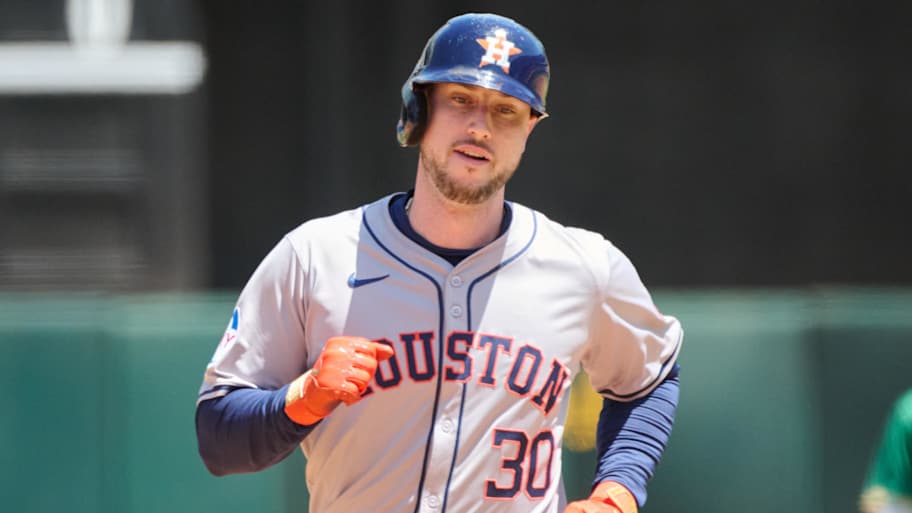The Houston Astros’ decision to reject a reported trade offer from the Philadelphia Phillies for star outfielder Kyle Tucker, reportedly involving two former All-Stars, sent shockwaves through Major League Baseball. While specifics of the offer remain undisclosed beyond the general framework, the Astros’ refusal underscores their unwavering commitment to contending for a World Series title and their high valuation of their young, cornerstone player. The rejection also highlights the complexities of modern MLB trades, where assessing player value, future projections, and organizational needs can lead to drastically different conclusions.
The rumored offer, which hasn’t been officially confirmed by either team, reportedly centered around two former All-Stars – players who, at the peak of their careers, had demonstrably impacted winning. The Phillies, desperate to bolster their outfield and inject more power into their lineup after a disappointing 2023 season, were reportedly willing to part with significant assets to acquire Tucker. This desperation speaks to the Phillies’ current predicament: a window of contention closing potentially around their aging core. They recognized Tucker’s blend of power, speed, and consistent production as a vital piece to bridge the gap between their current roster and a championship-caliber team.
For the Astros, however, the price wasn’t right. This isn’t a case of simple haggling; it’s a reflection of Tucker’s unique value to their organization. At 26 years old, Tucker is entering his prime. He’s a proven performer with a track record of success in both the regular season and the postseason. His consistent offensive contributions, defensive proficiency in right field, and leadership qualities within the clubhouse make him virtually irreplaceable. The Astros understand that replacing a player of his caliber would be an extremely difficult, if not impossible, task.
The rumored involvement of two former All-Stars likely points to players who are either on the decline, injury-prone, or carrying substantial financial obligations. While these players might offer short-term impact, they would likely lack the long-term value and potential upside that Tucker possesses. The Astros, known for their shrewd front office and long-term strategic planning, likely prioritized acquiring younger players with significant remaining control and higher ceilings over veterans nearing the end of their prime. The team’s philosophy revolves around building a sustainable contender, not engaging in short-term fixes.
The Astros’ rejection also speaks volumes about their internal confidence in their current roster. They are a team built on a foundation of young, homegrown talent, supplemented by shrewd acquisitions. Their farm system, while not overflowing with top-tier prospects, is stocked with players who could potentially contribute to future success. Trading Tucker would have disrupted the carefully cultivated chemistry and continuity within the clubhouse, a factor the Astros likely prioritized heavily.
Beyond the on-field impact, the potential emotional cost of trading Tucker must be considered. Tucker is a homegrown player, a testament to the Astros’ player development system. He’s a fan favorite, and his departure would have undoubtedly impacted team morale and fan sentiment. The Astros, acutely aware of the importance of team cohesion and player loyalty, likely weighed this intangible factor heavily in their decision-making process.
The Phillies’ perspective, however, is equally understandable. They are facing a crucial juncture in their franchise’s history. Their championship window, featuring aging stars like Bryce Harper and Zack Wheeler, is shrinking. They need to make aggressive moves to maximize their chances of winning a World Series before the opportunity slips away. The reported offer demonstrates their commitment to that goal, even if it meant potentially sacrificing valuable prospects or taking on considerable financial risk.
Ultimately, the Astros’ rejection highlights the subjective nature of player valuation in baseball. What one team considers an acceptable price for a player, another might view as insufficient. The Astros’ decision likely came down to a calculated risk assessment. They weighed the potential short-term gains of acquiring the rumored players against the long-term value of retaining a cornerstone player like Kyle Tucker. The decision underscores their belief in their current roster, their commitment to their long-term vision, and their faith in their ability to contend for a championship in the coming years, even without making a significant trade. The ripple effects of this rejected offer will likely be felt throughout the league, influencing future trade discussions and highlighting the ongoing strategic battles within the ever-evolving landscape of Major League Baseball.

